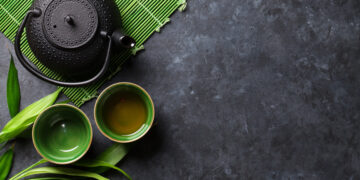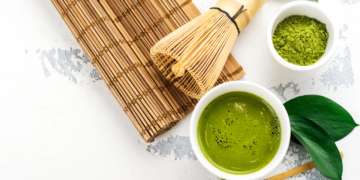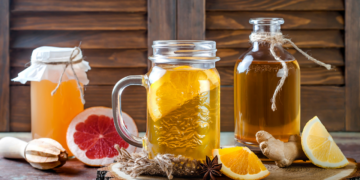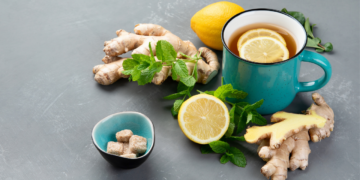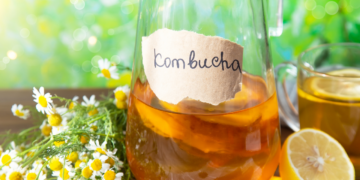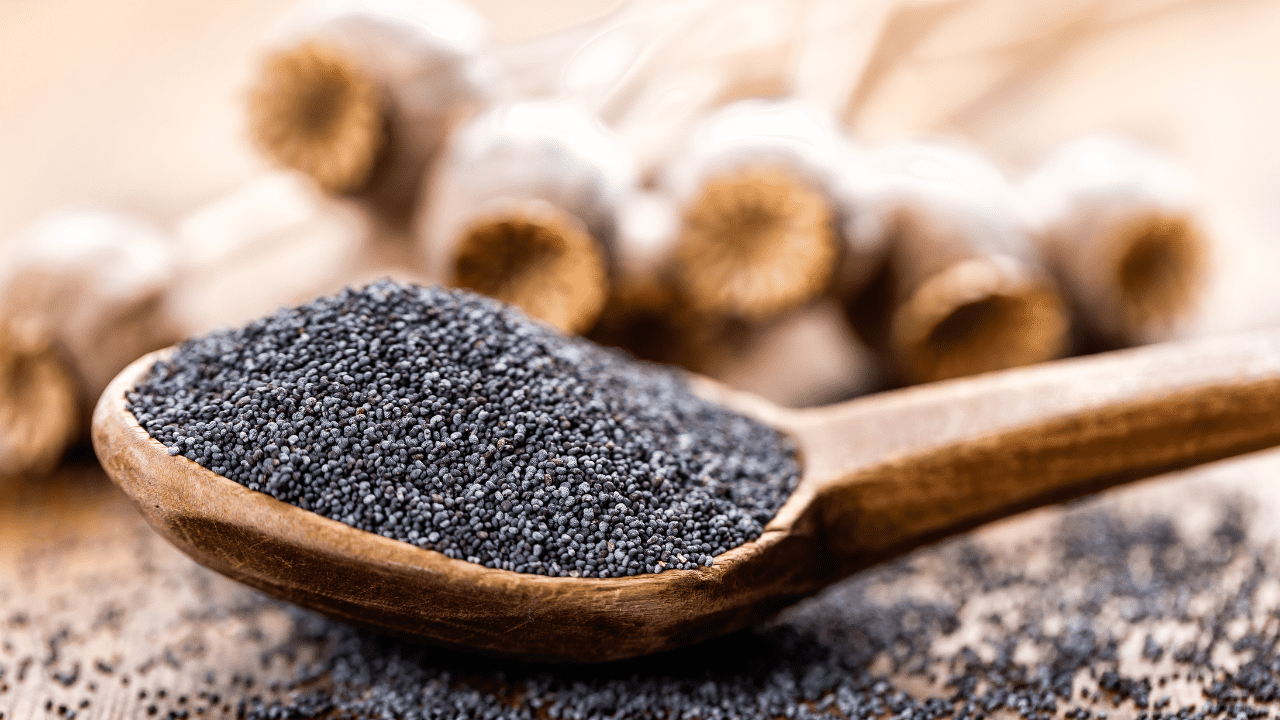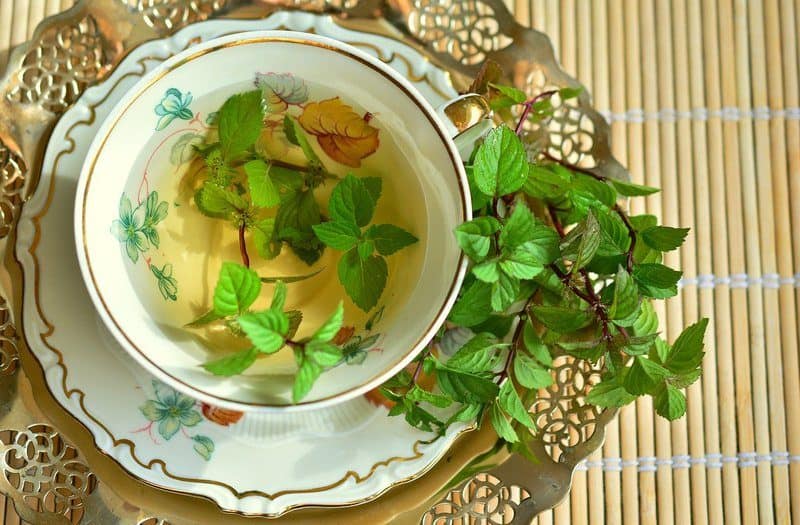
Every once in a while, we may suffer from a common cold that comes with dreaded coughing fits. Sustained coughing can be irritating and painful, but despite this, the thought of gulping down cough medication is out of the question for those of us with a more discerning palate. After all, this illness is something that we often think needs to run its course so we buckle up and prepare for the worst while trying our best to manage lingering symptoms.
One might wonder whether a warm cup of herbal tea does anything other than soothing the throat. True, the warmth of a hot tea soothes the throat and can loosen up mucus to promote clearance. Certain herbs also contain compounds that make them natural antitussive agents.
Here are 7 such herbs that you can use to prepare tea for your cough.
Herbal Teas For Cough
1. Honey Tea
The first ingredient on this list has to be honey. It is loved by (almost) everyone and is perfect for you if you don’t have any other herbs at home but need immediate relief from a cough. Honey has long been used to make any herbal tea antitussive.
Honey is rich in antioxidants that can help reduce inflammation and irritation in the throat. They have been shown to reduce cough associated with respiratory tract infections. Some studies suggest that it might be more effective than over-the-counter Benadryl (diphenhydramine). Honey has a fast onset of action. If your cough is disrupting your sleep, try taking honey tea 30 minutes before bed. Honey tea is even our top recommendation for drinks for sore throat.
You can use any herb that you have at home to prepare honey tea for your cough. If you have any of the below-mentioned herbs, adding a little bit of honey to them might give you a superior effect to fight your cough. Remember that honey is essentially sugar, so this should be used in moderation and avoided altogether if you have been told to limit added sugar in your diet.
2. Marshmallow Root Tea
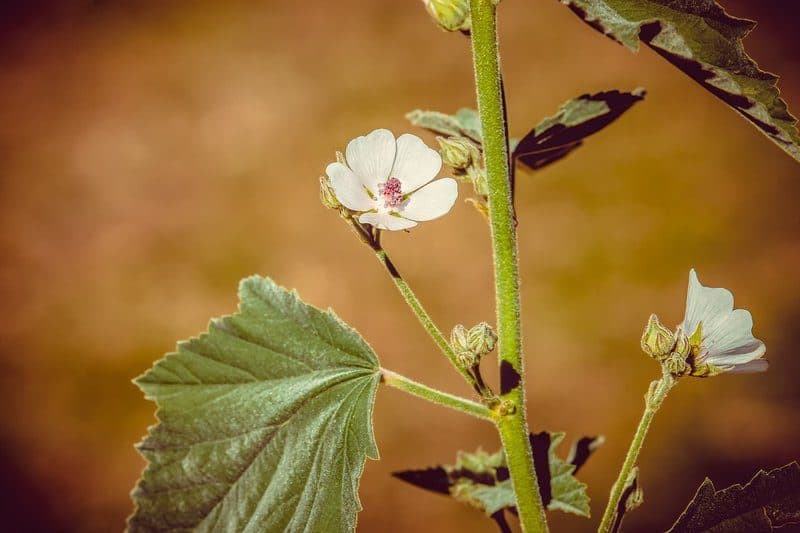
This native herb from Europe, Asia, and Africa has many medicinal properties and has been used for centuries to treat respiratory and digestive illnesses. It is now demonstrated to be effective against dry cough.
A study conducted in Germany reported that marshmallow root helped relieve oral and pharyngeal irritation and the cough associated with it. The best thing about it is that its action initiates quickly (within 10 minutes with syrup). It also has been shown to reduce mucus formation in respiratory tract infections.
To prepare marshmallow root tea, you can either get premade tea bags or use a dried marshmallow root. Steep it just like any other tea in boiled water and enjoy!
3. Thyme Tea
Thyme is a herb frequently used in culinary practice all across the world. But, thyme can also be used to prepare a cup of herbal tea, especially if you have a cough.
Studies suggest that thyme can be effective for acute bronchitis as it has demonstrated the ability to reduce both the frequency and severity of the cough by 50%. It even reduced the duration of the illness (by two days). That said, you may have to consume thyme tea for 10-15 days to resolve symptoms from your infection completely.
You could kick it up a notch and use a combination of thyme, primrose, and ivy leaf. This combination has been shown to be a powerful mix for cough relief!
4. Turmeric tea
Turmeric is a herb that is commonly used to flavor dishes. But, It is also well known for its antibacterial and anti-inflammatory properties, which may soothe the inflamed throat and work to kill off the bacteria causing a cough. It can help to alleviate cough, as well as clear mucus.
Due to lowered immunity, a common cold can sometimes result in secondary bacterial infection, which can spread into the lungs and cause conditions like acute bronchitis or pneumonia. Turmeric being an immune-boosting agent, might help prevent the common cold and work to prevent worsening of your cold into severe secondary complications.
To prepare turmeric tea, put 1-2 teaspoons of turmeric in water and simmer it for 5-10 minutes. Steeping won’t yield the best results with turmeric. Once done, strain the tea into a cup. It has a bland taste, so consider adding other flavors or a small amount of honey.
5. Oregano Tea
Though not the best-tasting tea, Oregano has been used for respiratory tract infections as well. It is thought to help relieve sore throat, cough, and hoarseness associated with URTI.
Oregano also has antibacterial, antiviral effects, and immuno-modulating effects. Thus, it may help to viral infections leading to cough and possibly further complications.
You can read more about the health benefits of oregano tea and how to prepare it in our previous article.
6. Sage Tea
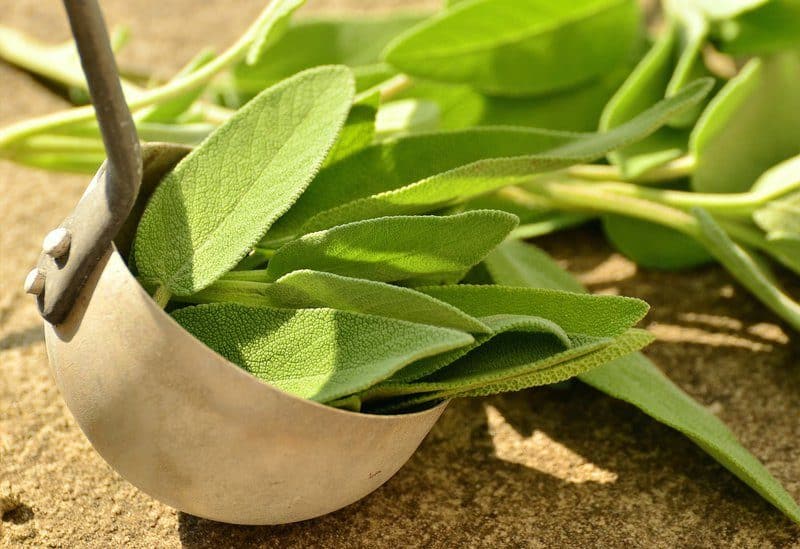
This holy herb is also known for its long list of health benefits, one of which is treating a throat infection. Sage is great for relieving the distressing symptoms of pharyngitis, including throat pain and sore throat.
One study suggests that its efficacy is equivalent to chlorhexidine and lidocaine in treating throat pain. It is also a great anti-inflammatory and anti-microbial agent. If you have a cough associated with throat pain, a hot cup of herbal tea made of sage might be just what you need.
Many sage varieties are available in the market but look for Salvia officinalis variety for your cough. The sage that is available to burn as incense is the Salvia apiana (white sage). White sage is not meant to be used in tea.
7. Horehound Tea
Horehound is a member of the mint family, traditionally used to treat the cough associated with pharyngitis, whooping cough, and even tuberculosis. It became less popular as the first choice cough remedy with advancements in medicine, but it is still very well-known for its antitussive activity.
That said, horehound has shown anti-inflammatory properties, so this might help to soothe your inflamed throat.
How to Prepare a Perfect Cup of Herbal Tea for Cough
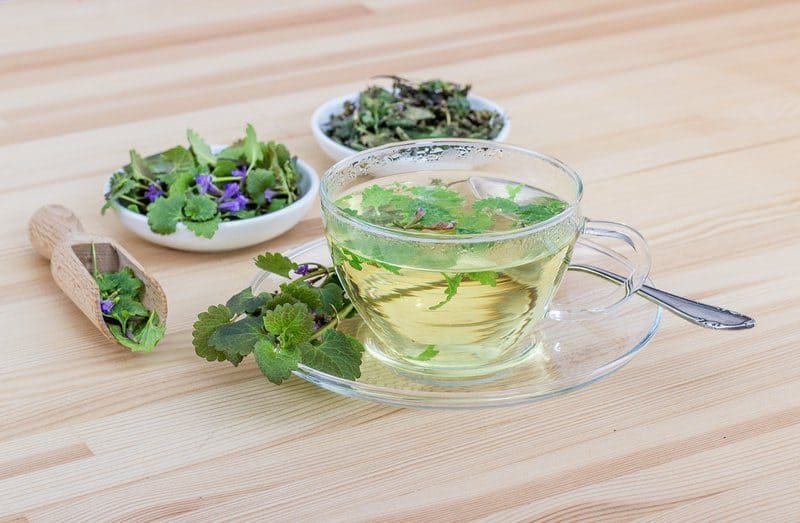
Herbal teas don’t contain any “tea” at all, actually. Tea technically means the beverage prepared by steeping or boiling leaves of the shrub Camellia sinensis, the tea plant. Though, you can add real tea leaves to your herbal tea if you are looking for a little bit of caffeine in your tea.
The process to prepare herbal tea is the same as you prepare regular tea. Start by boiling a pot of water. Make sure to bring the water to a boil because a higher temperature will help bring out the flavors and the beneficial substances from the herb into the water. Once the water is boiled, add the herb of your choice and let it steep in the hot water for 10-15 minutes.
Depending on how strong you want your herbal tea, you can add more amount of the herb. Once done, strain and enjoy your fresh tea. Add a small amount of honey to flavor and to get that added antitussive effect of honey. Remember that honey is adding sugar to your tea.
Experiment a little bit with a combination of herbs to create your perfect drink.
Possible Side-Effects of Herbal Teas
In general, herbs are usually pretty safe to use for most healthy individuals. However, they may have some side effects, usually when consumed at very high doses. Also, some people may be allergic to certain herbs. If you have any known allergies to these herbs, avoid using them.
Some possible side-effects of these herbs are as follows:
- Avoid giving honey to infants (babies less than 1-year-old). There is a risk of developing infant botulism if the honey is contaminated with a bacteria called Clostridium botulinum. This condition is reversible, but avoid the pain and added sugar by skipping honey for your little one.
- Sage, thyme, horehound, and Oregano belong to the mint family (Labiatae family). The herbs from this plant family tend to show cross-reactivity, meaning, if you are allergic to any herb of this family, you are likely to be allergic to other spices too. Sage, thyme, oregano, mint, marjoram, basil, lavender, etc., are some members of the Labiatae family.
- If you have a migraine, be cautious with thyme, as thyme can induce specific mechanisms in the system that causes migraine. The migraine triggers are different for everyone, so it might not induce migraine for you. If it is a trigger for you, avoid using it.
- Oregano is known to lower blood sugar levels. If you have diabetes on medication, be cautious and avoid using too much oregano tea. As always, if you have a chronic illness like diabetes, be sure to let your medical team know of any herbs you are consuming with regularity.
Conclusion
Make yourself a hot cup of herbal tea if you have a cough right now. They are soothing and effective and generally safe for use.
If you have a fever along with a cough, make sure you maintain adequate hydration. These teas will help you achieve your daily water requirements along with helping you with your cough.
Seek professional help if your cough doesn’t improve, if it worsens, or if you experience other symptoms such as a high fever with chills, difficulty in breathing or ear pain, etc.


